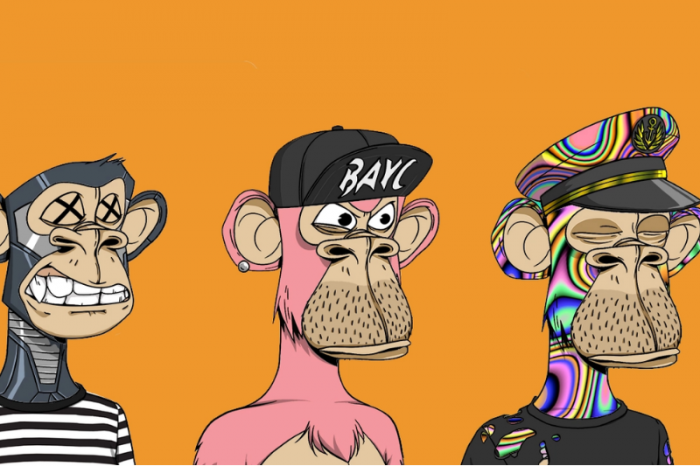If you are a novice in the NFT industry, you don’t have to feel lost, see 15 terms that you need to know as a beginner.
In the ever-changing world of cryptocurrencies, Non-fungible tokens (NFTs) have suddenly become arguably one of the fastest developing business sectors. From estimates of 2021’s activities, NFTs had a total trading value of $22 billion. Compared with 2020, the total trading value was just over $100 million. This growth shows an alarming and nearly inconceivable speed of development. But before you consider joining the a platform like NFT Era Website, it’s best to understand the basic terms that define this sector of the crypto industry. To this end, this piece brings you 15 of the essential NFT terminologies to know as a beginner.
Related articles:
– How can I hire a PCO car in London?
– How has the internet changed horse racing and gambling?
– Frances Haugen: 5 female whistleblowers that shook tech companies this decade.
Top 15 NFT terms to know as a beginner
Below are the top 15 terms used daily in the NFT industry to know before considering investing:
- Non-Fungible Tokens (NFTs) are a type of digital authenticity certificate that connect to either digital or physical content, with verifiable distinguishing information. These one-of-a-kind digital assets can be in the form of digital collectibles, works of art, music, etc.
- NFT marketplace is a platform running on blockchain technology and used to create, auction, advertise and trade NFTs. A famous example is the OpenSea platform, the first and largest NFT marketplace. Others include NBA Top Shot which runs on the flow blockchain, Nifty Gateway, Rarible, etc.
- Minting NFTs describes converting a digital file into a digital asset or crypto collectible. Such action is then recorded on the blockchain.
- Floor price refers to the lowest amount you can get an NFT in any category. Essentially, if you “buy the floor,” you are simply buying the cheapest NFT available in a project or collection.
- Fractional Ownership allows you partial rights over an NFT, which means creators or sellers of NFTs can decide to sell fractions or percentages of an asset, and you can buy according to your purchasing power.
- Gas Fee describes the amount or transaction fee paid on the Ethereum blockchain platform. And since every NFT sale conducted requires computing from the given network, Gas fees are payments made to compensate for the computing power. It is necessary to process and validate your transactions.
- Smart Contracts include the terms of a buyer-seller agreement, which are written into lines of code. The written code and its deals can be found across a distributed, decentralized blockchain network.
- Transaction Hash is an automatically generated unique ID for recording every transaction on the blockchain. A transaction Hash is generated for every action, such as NFT purchases, sales, and canceling orders. In like manner, all gas fees paid on the blockchain generate a transaction hash.
- Etherscan is a tool that allows you to explore the Ethereum blockchain conveniently. You can search your wallet address or verify transaction history by entering a transaction hash. It’s just a one-stop shop for verification of transaction completion, referrals, as well as royalty payments.
- MetaMask is a cryptocurrency wallet that is a gateway to NFT apps such as OpenSea, Rarible, Axie Infinity, and others.
- Metaverse is a virtual 3D world that allows individuals to interact. Decentraland and The Sandbox are just a few of the most popular blockchain-based environments that comprise the Metaverse. You also have virtual gaming worlds where you can buy and sell land as NFTs.
- NFT Games employ smart contracts and blockchain ledgers to record all transactions performed on the blockchain. They also authenticate unique digital collectibles.
- Play-To-Earn (PTE) is unlike regular NFT games because it allows you to earn real money from playing. These games also allow you to conduct several other services in its gaming environment using some unique cryptocurrency tokens.
- Dutch Auction is a bidding technique where all bids for a given asset are considered before arriving at a ceiling price. In many cases, the Dutch auction-style is regularly used to direct excess gas fees from miners to the artists. In other cases, it can be channeled to fund charities or a decentralized autonomous organization.
- Burn an NFT refers to the act of destroying a non-fungible token and hence eliminating it from the blockchain permanently. Once a burn action is performed on an NFT, it is sent to a verifiably inaccessible and un-spendable address which removes it from circulation forever.
Conclusion
When you consider the growth rate of NFTs today, you want to jump on with the hopes of making some money for yourself. While this is good, it’s best to familiarize yourself with many industry terms to make excellent decisions. Also, easy access to creating NFTs makes it hard to decide which token to invest in. That said, before buying, it’s wise to conduct extensive research!
You may also like to read:
– Devon Bostick Biography: movies, age, girlfriend, and more
– Angelique Boyer Biography: age, career, husband, and more
– Who is Erik Menendez’s wife Tammi Menendez?


